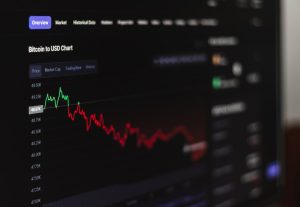Tax Implications for Forex Traders in the UK: What You Need to Know
Forex trading has gained significant popularity in recent years, with many individuals in the UK venturing into the world of currency trading. However, as with any form of investment, it is crucial to understand the tax implications that come with forex trading. In this article, we will delve into the tax regulations for forex traders in the UK and discuss what you need to know.
1. Tax treatment of forex trading
Forex trading falls under the category of speculative activity for tax purposes in the UK. This means that any profits made from forex trading are subject to capital gains tax (CGT) or income tax. The tax treatment depends on whether you are considered a trader or an investor.
If you are considered a forex investor, any profits made from forex trading will be subject to capital gains tax. Currently, the CGT rate in the UK is 10% for basic rate taxpayers and 20% for higher and additional rate taxpayers. It is important to note that there is an annual tax-free allowance, known as the Annual Exempt Amount, which is £12,300 for the tax year 2021/2022. Any gains below this threshold will not be subject to CGT.
On the other hand, if you are deemed a forex trader, your profits will be considered as income and will be subject to income tax. The income tax rates in the UK vary depending on the tax bracket you fall into. Basic rate taxpayers are subject to a 20% income tax rate, while higher and additional rate taxpayers face rates of 40% and 45%, respectively.
2. Record keeping and reporting
Proper record keeping is essential for forex traders in the UK. It is crucial to maintain detailed records of all trades, including the date, time, currency pairs traded, and the outcome of each trade. These records will be vital when calculating your taxable profits or losses and will help support any claims made to the tax authorities.
Additionally, forex traders in the UK are required to complete an annual self-assessment tax return. This tax return must include all relevant information regarding your forex trading activities, such as profits, losses, and any expenses incurred. It is important to ensure that you report your forex trading activities accurately and in a timely manner to avoid any potential penalties or fines.
3. Spread betting and tax implications
Spread betting is a popular form of forex trading in the UK. It is considered as gambling rather than investment, and therefore, any profits made from spread betting are tax-free. This means that you do not have to pay capital gains tax or income tax on your spread betting profits.
However, it is crucial to understand the distinction between spread betting and forex trading. If your trading activities go beyond spread betting and are considered as trading in the traditional sense, you will be subject to the tax regulations discussed earlier.
4. Claiming expenses
Forex traders in the UK have the opportunity to claim certain expenses related to their trading activities. These expenses can include trading software, data feeds, internet connection fees, and even education or training costs. However, it is important to note that any expenses claimed must be directly related to your forex trading activities and should be supported by proper documentation.
When claiming expenses, it is advisable to consult with a tax professional or accountant who has experience in dealing with forex traders. They will be able to guide you through the process and ensure that you are claiming all eligible expenses while staying within the boundaries of tax regulations.
In conclusion, forex trading in the UK comes with tax implications that traders must be aware of. Whether you are considered an investor or a trader, understanding the tax treatment of forex trading is crucial to avoid any potential issues with tax authorities. Proper record keeping, reporting, and seeking professional advice can help ensure compliance with tax regulations while optimizing your tax position as a forex trader in the UK.





